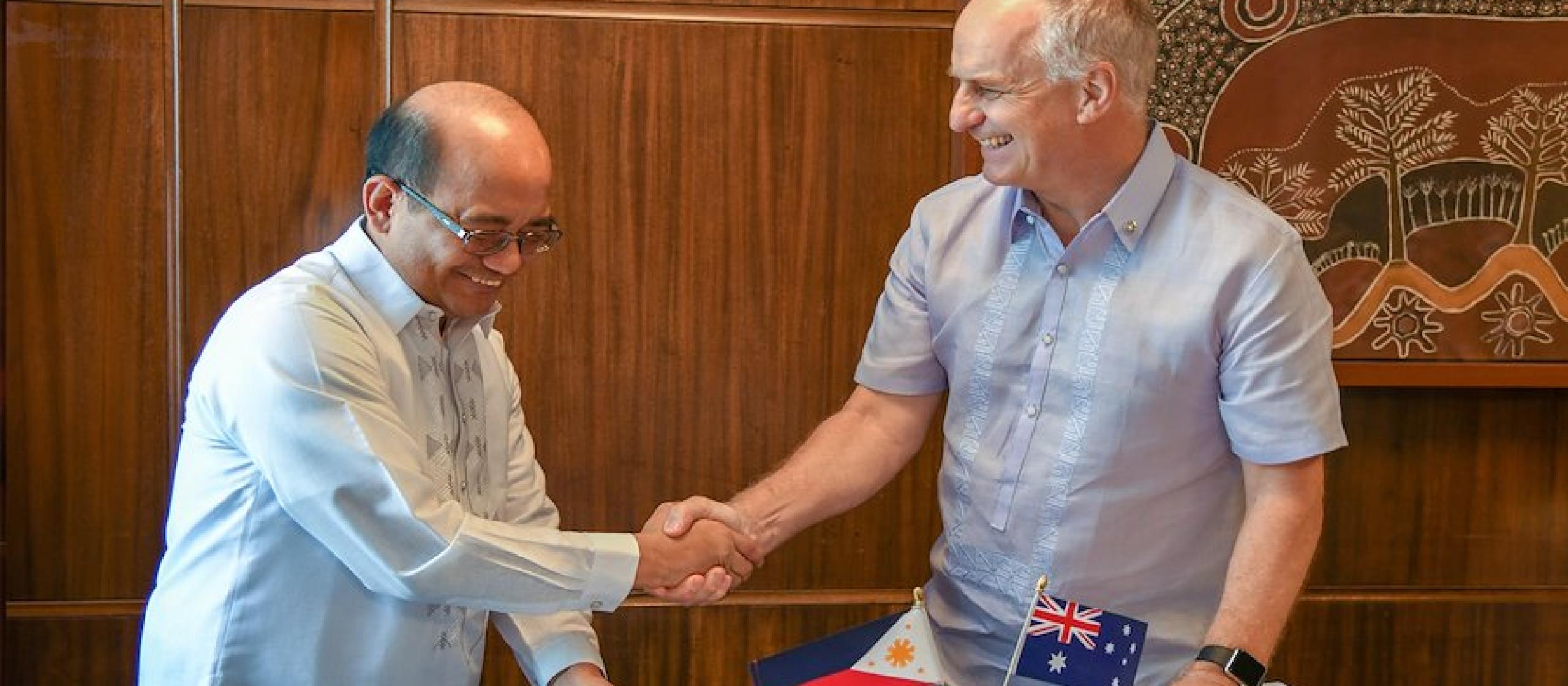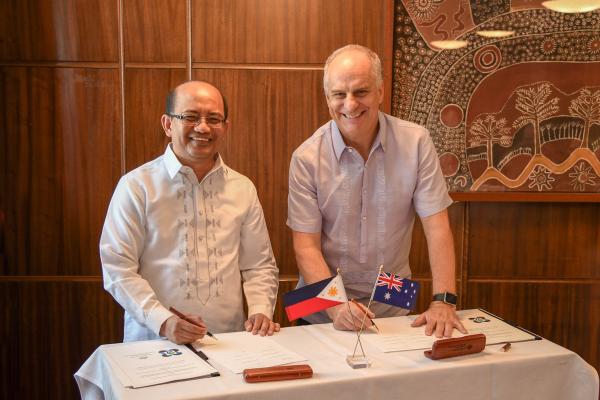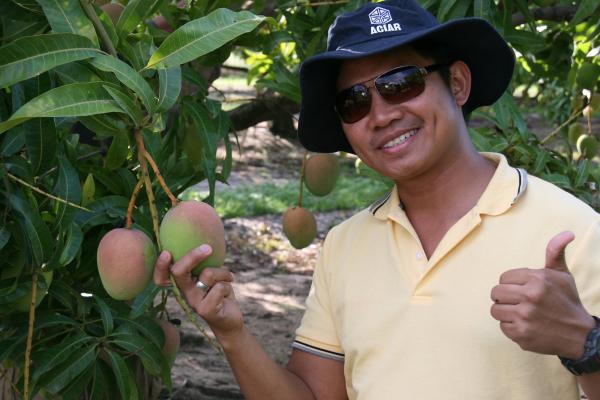- HomeHome
-
About ACIAR
- Our work
- Our people
-
Corporate information
- ACIAR Audit Committee
- Commission for International Agricultural Research
- Policy Advisory Council
- Agency reviews
- Executive remuneration disclosure
- Freedom of information (FOI)
- Gifts and benefits register
- Information publication scheme
- List of new agency files
- Contracts
- Legal services expenditure
- Privacy impact assessment register
- Commonwealth Child Safe Framework
- Benefits to Australia
- Careers
- 40 years of ACIAR
-
What we do
- Programs
- Cross-cutting areas
- Resources
- Where we work
-
Funding
- Research projects
- Fellowships
-
Scholarships
- John Allwright FellowshipScholarships to study in Australia for ACIAR partner country scientists to have Australian postgraduate qualifications
- ACIAR Pacific Agriculture Scholarships and Support and Climate Resilience Program
- Alumni Research Support Facility
- Publications
- News and Outreach
Date released
07 February 2019
ACIAR CEO, Professor Andrew Campbell, and the acting Executive Director of the Philippine Council for Agriculture, Aquatic and Natural Resources Research and Development (PCAARRD), Dr Reynaldo Ebora, signed a new partnership agreement between the two agencies in December 2018.
Speaking in Canberra after the signing, Dr Ebora said PCAARRD was motivated by a desire to build on the very productive 35-year relationship with ACIAR, and specifically, to focus on capacity building. PCAARRD was established in 1972; ACIAR followed not many years later, in 1982. In 1983, the two agencies signed a memorandum of understanding. Collaboration is very important to PCAARRD, Ebora said, because without active partnerships with state universities and colleges, and research and development institutes in the Philippines, as a funding agency PCAARRD may have ‘a good plan, but no implementing agencies’.
Over 2017–18, PCAARRD is overseeing 379 ongoing projects, with a total funding of ₱1.3 billion (A$34 million) from the Philippine government. PCAARRD has partnerships with agencies within the Philippines and internationally. ‘Our partnership with ACIAR is one of the most productive partnerships we have,’ he said. The two agencies have worked together on a number of projects focusing on livestock, forestry, water management and climate change. ‘Over 2017–18, PCAARRD is monitoring 11 ACIAR projects being implemented by our networks,’ he said.
Dr Peter Horne, ACIAR General Manager, Country Programs, said the new partnership agreement recognised the changing relationship between ACIAR and PCAARRD, with both organisations being co-investors in the research collaboration between the two countries. Collaborating in research, often with mutual benefits, and building capacity of agricultural research institutes in partner countries are key priorities for ACIAR. ‘With this new agreement, we want to work more closely as equal partners co-investing in research, capacity building and communicating about the partnerships in the Philippines’, Horne said.
Ebora said PCAARRD has some limitations in securing researchers to focus on issues critical to agriculture. ‘We don’t have enough researchers, and have difficulty in releasing people for higher study, due to their current teaching or administrative assignments.’ The number of people enrolling in agriculture at university has also declined, Ebora said. ‘Students are more inclined to take other courses, and those in agriculture are more inclined to take agricultural biotechnology or agricultural entrepreneurship, rather than the traditional agricultural disciplines. There are not enough plant pathologists and entomologists to meet the needs of industry and the research community.’
Recognising this, there is a strong appetite in the Philippines for encouraging and retaining scientific and technological expertise, as seen in the Balik (returning) Scientist Law enacted in June 2018. This strengthened the existing returning scientist program by giving expatriate Filipino scientists incentives to return home, such as exemption from licensing and permitting requirements, tax compensation, insurance, support for job opportunities for spouses and school admission for their children. The new law prioritises research fields such as agriculture, biotechnology, environment and natural resources, among others.
To address this issue through the new agreement, ACIAR and PCAARRD are exploring options for co-investing in graduate scholarships for students to undertake higher studies at Australian universities. Scholars will work on research topics aligned with PCAARRD-ACIAR-funded projects in the Philippines. The Philippines Department of Science and Technology (DOST) funds a standard scholarship program, and PCAARRD has secured several places for fully funded scholarships to Australian universities accredited by DOST. On their return from Australia after completing their graduate degrees, PCAARRD will provide them research grants, an initiative similar to its ongoing local graduate research and education assistance for technology (GREAT) program. Preferably, returning post-graduate scholars will enter the program on a project identified by PCAARRD which is co-funded by ACIAR and PCAARRD.
This scheme, Ebora said, will enable such researchers ‘to easily establish a track record, and be able to lead their sectors as soon as possible’.
PCAARRD is aware of some of the challenges that might arise, Ebora said, such as ensuring the research topics are relevant to the Philippines, and cultural differences in the way partners approach problems. However, he said the strength of the relationship between PCAARRD and ACIAR, where issues were discussed openly and honestly, would prevail, and any problems would be solved.
You can find more information about the Philippine Council for Agriculture, Aquatic and Natural Resource Research and Development via their website.





